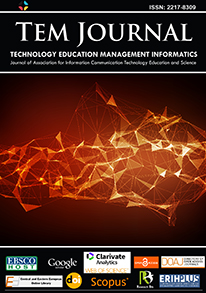Detecting Phishing Cyber Attack Based on Fuzzy Rules and Differential Evaluation
Detecting Phishing Cyber Attack Based on Fuzzy Rules and Differential Evaluation
Author(s): Rawaa Mohammed Abdul-Hussein, Ahmed H. Mohammed, Amal Abbas KadhimSubject(s): ICT Information and Communications Technologies
Published by: UIKTEN - Association for Information Communication Technology Education and Science
Keywords: phishing; cyber-attack; fuzzy rule;differential evaluation;
Summary/Abstract: Cyber-criminal attacks witnessed various phishing attacks that blindly attract users to use their secret personal information. This research highlights this type of attack and proposes the development of a new model to detect phishing websites. Two aspects of improvement were followed. Firstly, a new feature is inferred from a combination of features with higher classification capability than the original features. Secondly, a novel method has been proposed by using differential evaluation (DE) to select the best rules among the fuzzy rule set; the DE is a viable way to optimize the fuzzy rule, improving the classification complexity. The proposed system was evaluated by applying two malicious and legitimate datasets collected from Phishtank and Alexa websites. Results show the combination feature can include a promising method for detecting phishing attacks according to the evaluation metrics in the precision of 0.973, recall of 0.933, F-measure of 0.947, and accuracy of 0.976.
Journal: TEM Journal
- Issue Year: 11/2022
- Issue No: 2
- Page Range: 543-551
- Page Count: 9
- Language: English

